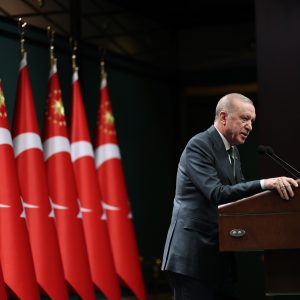Rohingya in Bangladesh need int’l support as Cyclone Mocha to be followed by monsoon season: IOM official
GENEVA (AA): Around 1 million Rohingya living in the world’s largest refugee camp in Bangladesh’s Cox’s Bazar district have been severely affected by Cyclone Mocha and may be further challenged by the approaching monsoon season before recovering, according to an International Organization for Migration (IOM) official.
“So on one hand, I would like to say the danger of this particular cyclone has passed, but the cyclone season continues and the monsoon season is about to start,” Nihan Erdogan, the IOM deputy chief of mission in Bangladesh, told Anadolu in an interview.
“So, the dangers from nature did not pass,” Erdogan said.
She said the monsoon season means a lot of rain, and the soil in the camps is not good to hold that rain, which would likely result in landslides and floods.
Rohingya in Bangladesh have been displaced for many years, and the structures they live in are made of bamboo and tarpaulin, which are vulnerable to various types of disasters, she noted.
Although the damage assessments are continuing, the IOM already knows that tens of thousands of them are affected, she added.
“I was in the camps yesterday. I was checking some of the damaged shelters. And right when I was there, we had a landslide,” she said. “The soil that I was standing on, I could see it with my eyes that it was going down.”
First fire, now cyclone, soon monsoon
Erdogan said the humanitarian agencies in the country worked in “very close” coordination with the government of Bangladesh.
Reminding that it was only two months before the cyclone when the camps were hit by a massive fire, she said: “We all know that only a month or two from today, the monsoon season will start, which means floods and landslides.
“So, there are so many ongoing needs, and that is where we need the support of the international community to provide the much-needed funding because the 2023 joint response plan, which is the main plan we all work on, is currently underfunded,” she said, noting that it is around 16-17% funded.
“That’s a very low number considering that all of 1 million people (in the camps) depend on humanitarian assistance. So, that figure needs to increase significantly,” she said.
Sharing one of the conversations she had in the camps on Monday, Erdogan said an elderly person who had no children, no wife, and no other relatives asked her how many more times he has to lose his shelter.
The old man had lost his shelter in the fire in March and then lost the rebuilt one to two days ago, she noted.
Erdogan noted that according to the information they received from different health facilities, there are some injured people but no deaths have been reported inside the refugee camps.










